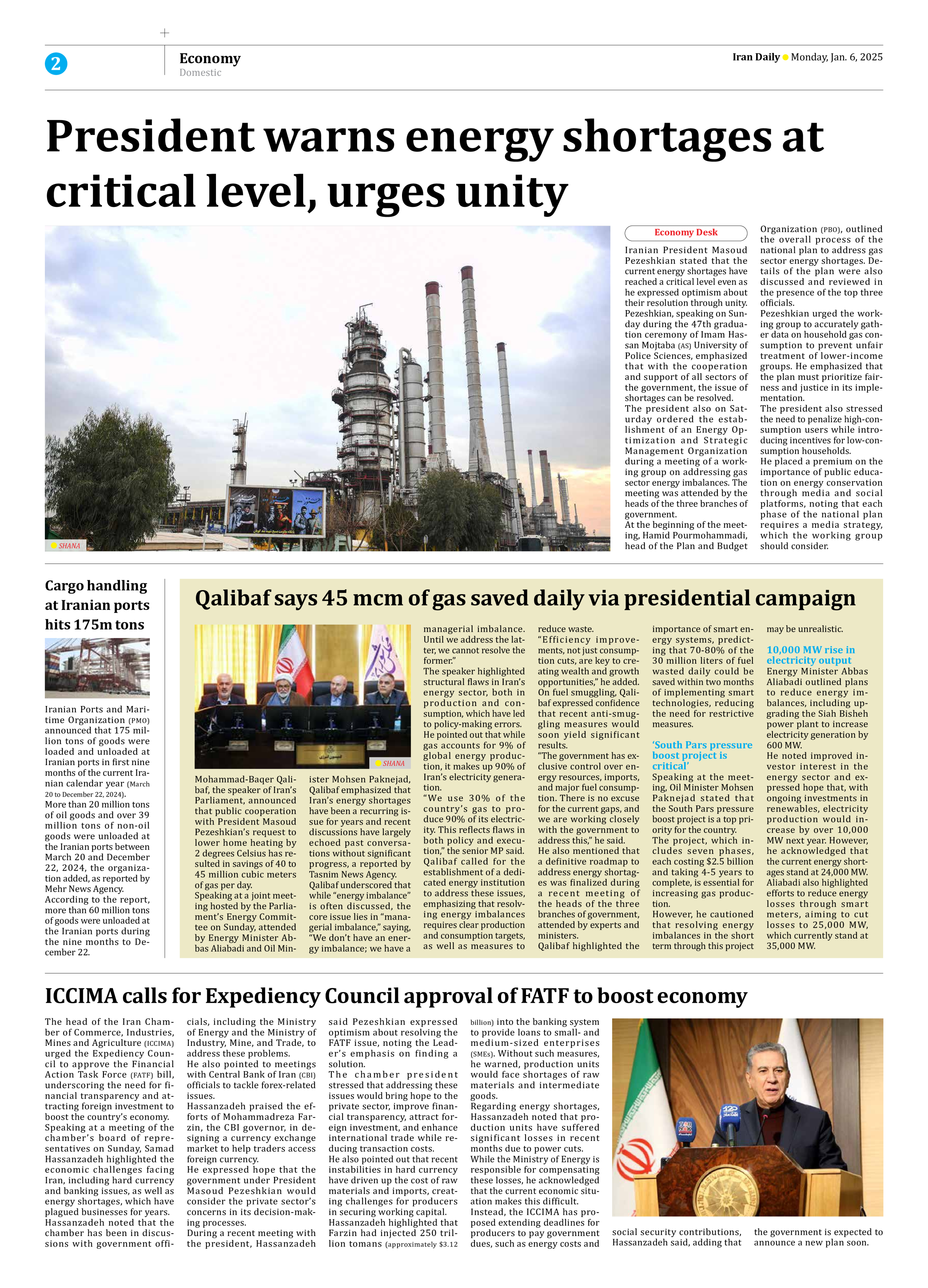
Copy in clipboard...
ICCIMA calls for Expediency Council approval of FATF to boost economy
Speaking at a meeting of the chamber’s board of representatives on Sunday, Samad Hassanzadeh highlighted the economic challenges facing Iran, including hard currency and banking issues, as well as energy shortages, which have plagued businesses for years.
Hassanzadeh noted that the chamber has been in discussions with government officials, including the Ministry of Energy and the Ministry of Industry, Mine, and Trade, to address these problems.
He also pointed to meetings with Central Bank of Iran (CBI) officials to tackle forex-related issues.
Hassanzadeh praised the efforts of Mohammadreza Farzin, the CBI governor, in designing a currency exchange market to help traders access foreign currency.
He expressed hope that the government under President Masoud Pezeshkian would consider the private sector’s concerns in its decision-making processes.
During a recent meeting with the president, Hassanzadeh said Pezeshkian expressed optimism about resolving the FATF issue, noting the Leader’s emphasis on finding a solution.
The chamber president stressed that addressing these issues would bring hope to the private sector, improve financial transparency, attract foreign investment, and enhance international trade while reducing transaction costs.
He also pointed out that recent instabilities in hard currency have driven up the cost of raw materials and imports, creating challenges for producers in securing working capital.
Hassanzadeh highlighted that Farzin had injected 250 trillion tomans (approximately $3.12 billion) into the banking system to provide loans to small- and medium-sized enterprises (SMEs). Without such measures, he warned, production units would face shortages of raw materials and intermediate goods.
Regarding energy shortages, Hassanzadeh noted that production units have suffered significant losses in recent months due to power cuts.
While the Ministry of Energy is responsible for compensating these losses, he acknowledged that the current economic situation makes this difficult.
Instead, the ICCIMA has proposed extending deadlines for producers to pay government dues, such as energy costs and social security contributions, Hassanzadeh said, adding that the government is expected to announce a new plan soon.







